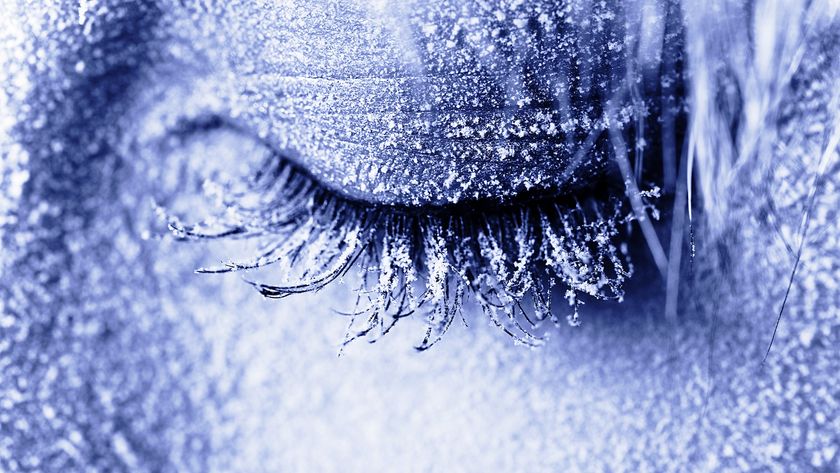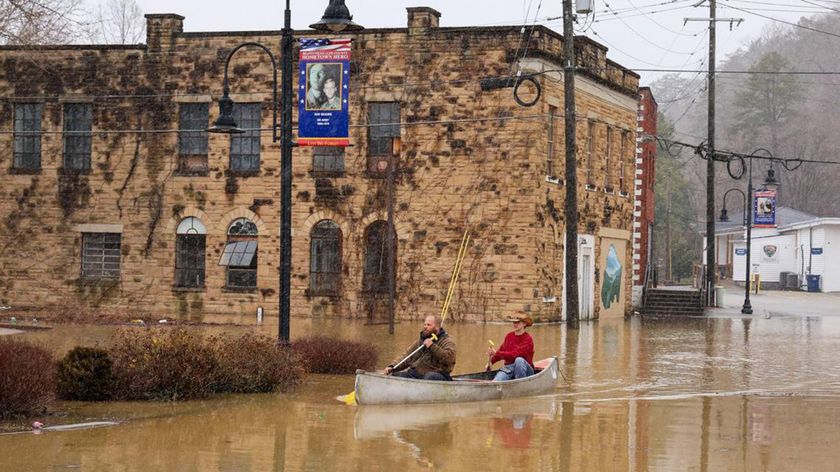Accidental Deaths Higher in Most Honorable States
In 1856, with tensions between the pre-Civil War North and South at a boiling point, Mass. Senator Charles Sumner took to the floor to denounce the Kansas-Nebraska Act and one of its authors, South Carolina Senator Andrew Butler. The speech, filled with sexual innuendo and jokes about Butler's recent stroke, raised the ire of Preston Brooks, a South Carolina Representative and Butler's nephew. Two days later, Brooks beat Sumner to the point of unconsciousness on the Senate floor in defense of his uncle's honor.
While bloody beatings in the Senate aren't so common anymore, the culture of Southern honor is still alive and well. Now, a new study finds that this culture may contribute not just to aggression and violence, but to accidental deaths as well.
"Honor states," or states whose residents place a high value on personal honor, have higher rates of fatalities from accidents than states without an honor culture, the new research finds.
In fact, as many as 7,000 people a year might die in the United States from accidental deaths attributable to living in an honor culture, said study researcher Ryan Brown, a psychologist at the University of Oklahoma. Excess risk-taking may be at the root of the higher accidental death rate, Brown said. [7 Thoughts That Are Bad For You]
"If people are trying to demonstrate their toughness and bravery in these honor states, you ought to see a higher level of accidental deaths," Brown told LiveScience. "And you do, it turns out."
Cultures of honor
Pinning down the most "honorable" states is an inexact science, but honor cultures pop up all around the world, Brown told LiveScience. They're especially prevalent in areas where resources are limited and there is little police presence or other authority.
Sign up for the Live Science daily newsletter now
Get the world’s most fascinating discoveries delivered straight to your inbox.
"People adapt culturally to those kinds of environments and one of the ways they do so is make sure that nobody messes with them," Brown said. "You can do that preemptively by developing a reputation as someone who should not be messed with."
For those reasons, men in honor cultures are expected to be strong and tough, Brown said.
In the United States, honor culture stems largely from Scotch-Irish settlers, who flooded into the Carolinas and Appalachian Mountains in the 1700s before spreading south- and westward, Brown said. Back in their native southern Scotland, the Scotch-Irish had been under constant siege from both the English and the Scots before being encouraged to settle in Ireland, another hardscrabble, battle-weary spot. From there, Scotch-Irish immigrants brought their honor culture to the United States.
Today, southern and western states are considered "honor states," Brown said, while the Northeast, Midwest and Middle Atlantic States (plus Alaska and Hawaii) are not. The boundaries blur somewhat in the West, Brown said, where immigration patterns aren't as straightforward as in the North and South.
Death and honor
Earlier studies have shown a link between honor culture and homicide and aggression, perhaps because people who subscribe to honor ideals are more likely to fight for their reputation and the reputation of others (Brooks and his Senate-floor violence being a textbook case). But while chatting about growing up in "honor states," Brown and his graduate students noticed a pattern in which young men would take risks to prove their masculinity.
To test these observations, the researchers used the geographical honor state boundaries as well as a sociological scale developed in the 1970s that measures that level of Southern cultural influence on states. Then they looked at Centers for Disease Control and Prevention (CDC) data on accident deaths for each state, including automobile accidents, falls, drowning and other causes.
To prevent factors such as poverty, medical care and higher rates of driving from swaying the analysis, the researchers controlled for income, unemployment, education, overall death rate, health-care availability, police officers per capita and miles driven per capita, among other variables.
They found that whites in honor states had a higher accidental death rate of about 42.03 per every 100,000 people than whites in non-honor states, which had an average accidental death rate of 36.89 per 100,000. [Understanding the 10 Most Destructive Human Behaviors]
Nonwhite ethnicities did not show the same honor effect, the researchers found, suggesting a Scotch-Irish origin for this culture of honor.
This effect was much stronger in men than in women. In honor states, men died in accidents at a rate of 57.7 per 100,000, compared with 51.6 in non-honor states. Women died in accidents in honor states at a rate of 27.4 per 100,000, up from 23.3 per 100,000 in non-honor states.
Risky business
But this correlation told researchers little about how honor might affect the accidental death rate. So they gathered about 100 undergraduates and asked them to fill out a questionnaire that would measure how strongly they subscribed to honor culture values such as "A real man doesn't let other people push him around."
Two weeks later, the same students filled out another questionnaire, this one asking them how willing they'd be to engage in risky behaviors, like investing all of their money in a long-shot scheme or bungee-jumping.
As it turned out, the students who believed most strongly in honor values were also more likely to say they'd take big risks. This was true for men and women, Brown said.
The finding suggests that it's a macho need to prove oneself that leads to the higher level of accident deaths in honor states, Brown said. Women seem to feel this need to some extent, too, he said.
"There's evidence showing that if you live in a society that has certain norms, where a lot of people are behaving according to those norms, you end up conforming to them, too," Brown said.
"Maybe it's showing up for [women] to a surprising degree because they value it for themselves, too," he added.
Women in these states may also be collateral damage when men take risks, Brown said. For example, a speeding macho man might crash his car into a female driver.
Avoiding the honor trap
The research has implications for public safety campaigns, Brown and his colleagues wrote. For example, in honor states, announcements saying things like, "Real men wear seatbelts," might tap into honor values for a good cause.
Being aware of honor values might also help diffuse potentially dangerous situations, Brown said. One of his own graduate students had that experience during a road-rage incident in which a driver came up to his car at a stoplight and started screaming at him.
"He was able because of that awareness to kind of swallow his pride a little bit as this guy was unfairly yelling at him in front of God and country and bring it down a couple of notches," Brown said. "He was able to overcome that social programming to perhaps keep the altercation from turning violent."
You can follow LiveSciencesenior writer Stephanie Pappas on Twitter @sipappas. Follow LiveScience for the latest in science news and discoveries on Twitter @livescience and on Facebook.

Stephanie Pappas is a contributing writer for Live Science, covering topics ranging from geoscience to archaeology to the human brain and behavior. She was previously a senior writer for Live Science but is now a freelancer based in Denver, Colorado, and regularly contributes to Scientific American and The Monitor, the monthly magazine of the American Psychological Association. Stephanie received a bachelor's degree in psychology from the University of South Carolina and a graduate certificate in science communication from the University of California, Santa Cruz.
Most Popular




